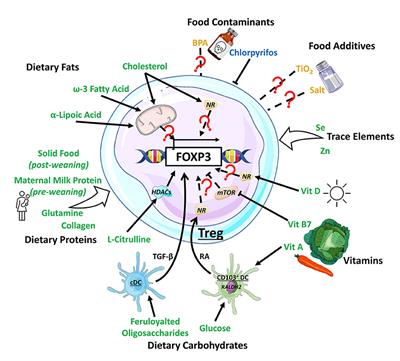
Different types of dietary oils can be found in food. While most are harmless, some may not be. You may also gain weight from them. You may experience difficulty losing weight if you eat too many calories. To avoid this problem, you must limit your intake of fat. Here's how it works: First identify the fats in your diet. They are classified into saturated, trans, and unsaturated.
Understanding the differences between saturated and unsaturated fats is essential to understand how to eat healthy fats. Saturated fats are solid at room temperature, and they are found in animal products such as red meat, full-fat dairy products, and eggs. Coconut oil as well as palm oil are good sources of saturated oil. Monounsaturated as well as polyunsaturated fats can be good for your health. They are also available in vegetable oils and olive oils.

There are several types of dietary fats. Saturated fats are bad for you, while monounsaturated fats are healthy for you. Saturated Fats are the worst type of fat and should be limited if you're trying to lose weight. However, saturated and trans fats have a negative impact on your health. Your daily intake of dietary fat should be between 5 and 10 grams.
Although a moderate amount is good for your body, it's better to keep it at a lower level than ideal. Saturated oils can lead to weight gain, as well as increasing your chances of developing cancer or diabetes. You should limit your intake of saturated fat. By following these tips, you can make your diet more nutritious while reducing your overall calorie intake. These foods are great for your overall health.
Saturated fats have the highest health risks. Saturated fats are the most harmful. They should not exceed five to six percent of your daily calories. However, saturated fats should be considered a part your diet. Many fatty foods are made up of several fatty acids. Therefore, it is a good idea to include them in the diet. If you're eating only one type of fat, you can choose to replace them with unsaturated ones.

Saturated oils are the worst. These fats are highly harmful to your health. So, you should try to reduce the amount of saturated fats in your diet. Saturated fats may cause you to gain weight. It's also important to watch your sodium intake. The American Heart Association recommends that saturated fats are limited. You should eat more fruits and vegetables if you want to have the best diet possible.
There are two types dietary fats. You can get them from animal foods and plant-based foods. Omega-3 fats, which are healthy for the heart, are better than saturated fats. They have a variety of other benefits to your health. Particularly beneficial for your heart are the omega-3 fats found within fish and poultry. They are vital for the health and well-being of your heart. Your heart will be grateful if you eat omega-3 fatty acid rich foods.
FAQ
Which workout is the most effective for men
It depends on what you're looking for. Cardio workouts are great if you're looking to lose weight. They burn calories much faster than strength-training exercises.
If you want to just build muscle mass, strength training is better as it increases lean body weight.
Both types are good for improving your overall health.
If you're looking for a quick way to get fit, I recommend HIIT/sprint interval training. This type of training helps you burn fat quickly by increasing your metabolism. It can also increase your endurance, so that you can train even when fatigued.
Why is Metabolic Wellness the Key to Aging Well
People are living longer lives today than at any point in history. But as they do, they're also getting sicker. Even though we have made significant advances in medical science it is becoming clearer that our current approach doesn't work.
We have to change how we see health and aging. Healthful aging requires that we start to think about metabolic health, which is not only weight loss but overall well-being.
You must ensure your metabolism is strong and healthy throughout your life if you want to lead a long, active life.
There are many ways you can improve your metabolic health. One way is to include these 7 foods in your diet.
-
Blueberries contain resveratrol, which has been shown to help support cellular longevity. They are rich in antioxidants as well as vitamins C & E.
-
Beans such as pinto beans and lentils provide excellent fiber and plant protein. These nutrients are important for maintaining blood sugar levels that don't spike, crash or change.
-
Broccoli is rich in sulforaphane. Studies have shown that it protects cells from DNA damage. It may even be able to slow down cancer progression.
-
Chia Seeds have high levels of omega-3 fatty oils and fiber. They are high in protein and antioxidants. These nutrients promote gut health, brain function and heart health.
-
Green tea contains catechins, which are polyphenols. Green tea's catechins have been linked with reduced bone fractures as well as cardiovascular disease, cognitive decline, dementia, and increased diabetes risk.
-
Salmonis one of the best sources of lean protein, low in saturated fat, and packed with vitamin D.
-
Walnuts are high in omega-3s. They also contain antioxidants like alphalipoic Acid (ALA). ALA is an antioxidant that protects against inflammation. It also boosts energy production.
Is it true to say that protein overeating can lead to kidney stones?
Protein is important for maintaining healthy bones and tissue. However, too much protein can result in calcium excretion through the urine. In turn, this can result in kidney stones.
Not everyone who eats more than 2g of protein per kilogram (2.2 lbs) of bodyweight will get kidney stones. Some people can eat high amounts of protein without getting kidney stones.
Watching your sodium intake can help prevent kidney stones. Sodium helps regulate water balance in the kidneys. Too much sodium can cause kidney stones.
You can also try reducing your protein intake if you get kidney stones. For most people, protein provides half their daily caloric requirements. You'll lose weight if you reduce your intake of protein.
If you do decide to eat more protein, don't go overboard. You should aim to consume less than 20% of your total calories from protein.
Statistics
- Are You One of the 20% of Guys (mh.co.za)
- An estimated calorie range for moderately active adult males falls between 2,200 to 2,800 calories per day, depending on age. (eatright.org)
- By John Thompson Take a whopping 38% off a set of PowerBlock Pros. (menshealth.com)
- Get free shipping and 25% off today. (healthline.com)
- According to the American Academy of Dermatology (AAD), men over 50 are at a heightened risk of developing it. (healthline.com)
External Links
How To
How can I burn fat and exercise?
Exercise burns calories through increased metabolism and oxygen consumption.
Exercise at a moderate intensity to safely lose weight.
These are some tips to help you lose fat while working out:
-
Cardio exercises include walking, running, swimming, cycling, running and jogging.
-
You can exercise for 30 mins three times per week.
-
You can lose weight by adding strength training to the routine.
-
Avoid intense training. It's possible to build muscle, but not lose it.
-
Keep hydrated during exercise. Water flushes out toxins and helps keep the body hydrated.
-
Choose low-fat protein shakes after working out. Protein shakes boost energy and repair muscle tissue.
-
You can eat smaller meals throughout the day so that you don't feel hungry in between meals.
-
Don't skip breakfast! Skipping breakfast can lead to fatigue and sluggishness.
-
Take care to your mental well-being. Stressful situations can slow your metabolism.
-
Keep a positive attitude. Research shows that overweight people gain more weight if they believe they are overweight than those who believe they look good.
-
Sleep enough. Insufficient sleep can make it more difficult to lose weight.
-
Always be active. Be sure to get up and move around every hour or two.
-
Maintain a healthy diet. Healthy eating will keep you fuller and more satisfied for longer.
-
Find ways to relax. An anxious mind won't allow your body release stress hormones, which can lead to the destruction of muscle tissue.
A balanced diet will provide all nutrients that are necessary for growth.
Six small meals per day is better than three large meals. This allows your body to properly digest what you have eaten.
You need about 500 milligrams of calcium daily to maintain strong bones. Calcium can be found as a dairy product such as milk, yogurt and fortified soy drinks, orange juices, cereals, breads, and cereals.
Calcium comes from leafy green vegetables, beans, tofu, nuts, seeds, and cheese.
Your body needs vitamin D to absorb calcium. Vitamin D can be found in egg yolk, fatty fish, and other fortified foods.
Vitamin E is crucial for skin health. It can be found as a vegetable oil, wheat germ, peanuts or almonds.
Your body requires zinc for normal immune function and wound healing. Zinc can be found in seafood, legumes and meats.
Zinc deficiency can cause fatigue, loss of appetite, depression, and impaired immunity.
Consuming too much sugar can cause insulin resistance. This causes an increase in blood glucose levels. Insulin resistance causes weight gain.
Insulin resistance is caused by high blood levels of free-radicals. Free radicals can be molecules with unpaired electrons that cause damage to cell membranes.
Most free radicals come from pesticides herbicides, food additives, preservatives smoking, radiation, chemical in cosmetics, lotions and household cleaning supplies.
Free radical damage can cause cancer, heart disease and diabetes, as well as arthritis, asthma, and other diseases.
A well-balanced diet rich in antioxidants is the best way for you to avoid free radical damage. Antioxidants protect against oxidative damage.
Antioxidant vitamins include Vitamin C (found in citrus fruits), beta carotene (found in carrots, sweet potatoes, spinach, broccoli, cantaloupe, apricots, squash, mangoes, peaches, peppers, tomatoes, cabbage, cauliflower, kale, Brussels sprouts, collard greens, watermelon, and strawberries), and Vitamin E (found in nuts, olive oil, avocados, and eggs).
Additional antioxidant nutrients include selenium and copper, manganese and zinc.
Selenium helps to protect cells against free radicals and oxidative stress. Selenium is also found in Brazil nuts.
Copper protects the eyes, brain, lungs, liver, and red blood cells. Copper is found in shellfish, poultry, meat, and organ meats.
Manganese, an essential component of bone strength, is crucial. Manganese can be found in brown rice and spinach as well as bananas, prunes raisins, oatmeal, lentils, and oatmeal.
Zinc is essential for normal growth, reproduction, wound healing, and average growth. Zn is present in lean cuts of meat and white fish, as well as eggs.